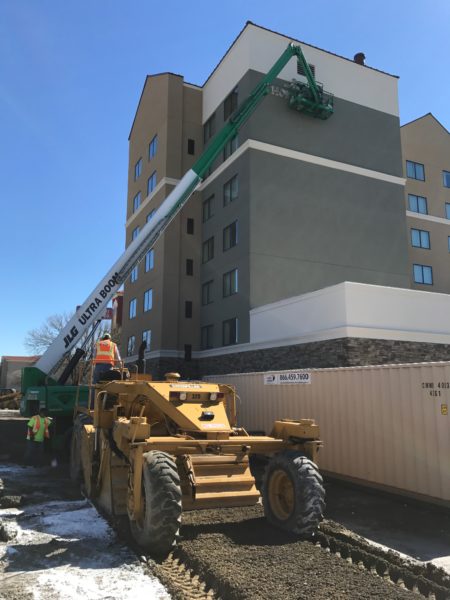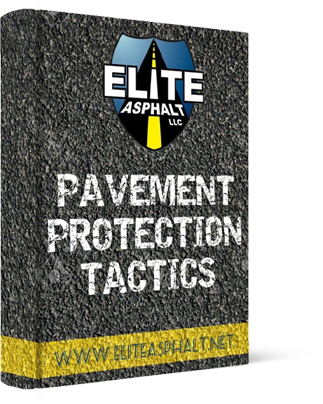 Base Stabilization is an effective asphalt or concrete pavement rehabilitation method that provides a solid, durable base that will be capable of withstanding a wide range of traffic loads for parking lots, roadways, and other high-traffic, heavy-load surfaces.
Base Stabilization is an effective asphalt or concrete pavement rehabilitation method that provides a solid, durable base that will be capable of withstanding a wide range of traffic loads for parking lots, roadways, and other high-traffic, heavy-load surfaces.
This method allows us to create an enhanced homogeneous material that uses the entire thickness of the existing bituminous layer and a segment of the underlying granular materials, which will reduce the construction time and material transportation costs. This procedure is successfully utilized in urban, rural, and freeway applications.
 An extensive variety of pavement distresses, including longitudinal and transverse cracking, rutting, warping, and raveling might be treated with different stabilization methods to improve the ride quality and provide a structural improvement to your parking lot or roadway.
An extensive variety of pavement distresses, including longitudinal and transverse cracking, rutting, warping, and raveling might be treated with different stabilization methods to improve the ride quality and provide a structural improvement to your parking lot or roadway.
Base Stabilization agents typically utilized throughout the United States include:
- Foamed asphalt cement
- Emulsion
- Lime
- Portland cement
- Fly ash
- Liquid chloride
A combination of mixing 6% Portland cement at a 12-inch depth before installing 2 inches of hot mix asphalt. The subsequent recycled material must be covered with hot mix asphalt or chip seal.
A geotechnical examination should be performed to determine the proper stabilization techniques to be utilized considering traffic load forecasts, climate, and life cycle.
Base Stabilization is very appealing to property owners because of the lower life-cycle costs, overall performance, low environmental impact, and ease of construction.
Have Questions About Base Stabilization? Get in Touch With Us Today!
One of our Asphalt Consultants will discuss your project and walk you through the necessary requirements to ensure your base is properly stabilized to ensure long-term results. Call (817) 451-0011









